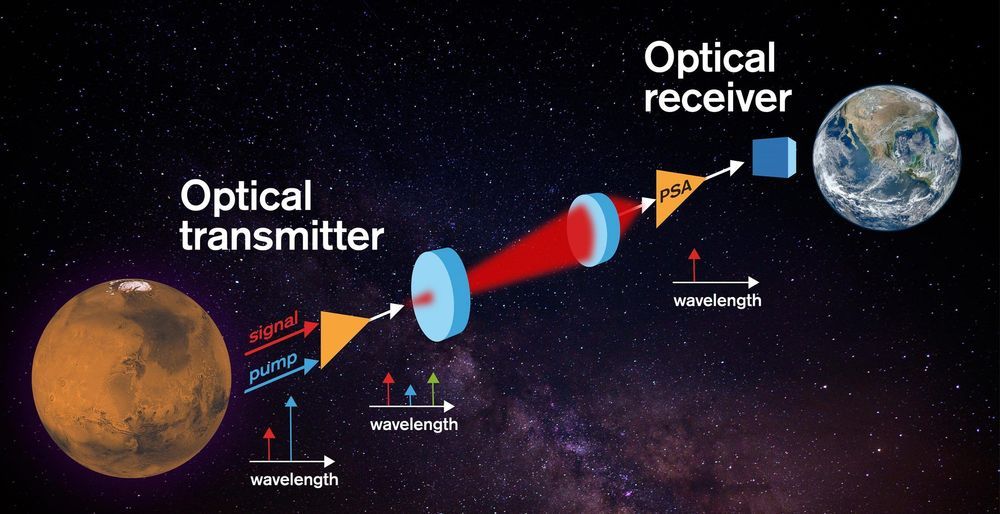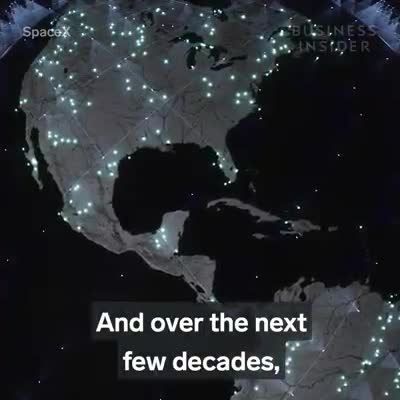Starlink’s limited beta hooked up a reservation in rural Washington state.
Category: internet – Page 219

The Coming Internet: Secure, Decentralized and Immersive
The blockchain revolution, online gaming and virtual reality are powerful new technologies that promise to change our online experience. After summarizing advances in these hot technologies, we use the collective intelligence of our TechCast Experts to forecast the coming Internet that is likely to emerge from their application.
Here’s what learned:
Security May Arrive About 2027 We found a sharp division of opinion, with roughly half of our experts thinking there is little or no chance that the Internet would become secure — and the other half thinks there is about a 60% probability that blockchain and quantum cryptography will solve the problem at about 2027. After noting the success of Gilder’s previous forecasts, we tend to accept those who agree with Gilder.
Decentralization Likely About 2028–2030 We find some consensus around a 60% Probability and Most Likely Year About 2028–2030. The critical technologies are thought to focus on blockchain, but quantum, AI, biometrics and the Internet of things (IoT) also thought to offer localizing capabilities.
Elon Musk Shares New Starship Details | SpaceX in the News
SpaceX in the News Episode 115. Today we catch up on all the latest Starship and Super Heavy updates. Go over recent Dragon news. Talk Starlink and other upcoming missions, and finish with today’s Honorable Mention.
SUBSCRIBE: https://www.youtube.com/spacexcentric
BECOME AN XCENTRIC MEMBER: https://www.youtube.com/spacexcentric/join
SUPPORT ON PATREON: https://www.patreon.com/spaceXcentric
JOIN OUR DISCORD: https://discord.gg/UCv4yx4
WEBSITE: https://spacexcentric.com

The Most Sensitive Optical Receivers Yet for for Laser-Beam Based Space Communications
Communications in space demand the most sensitive receivers possible for maximum reach, while also requiring high bit-rate operations. A novel concept for laser-beam based communications, using an almost noiseless optical preamplifier in the receiver, was recently demonstrated by researchers at Chalmers University of Technology, Sweden.
In a new paper published in the scientific journal Nature: Light Science & Applications, a team of researchers describes a free-space optical transmission system relying on an optical amplifier that, in principle, does not add any excess noise — in contrast to all other preexisting optical amplifiers, referred to as phase-sensitive amplifiers (PSAs).
The researchers’ new concept demonstrates an unprecedented receiver sensitivity of just one photon-per-information bit at a data rate of 10 gigabits per second.


Elon Musk Is Providing Internet To Wildfire Towns To Help Firefighters
Elon Musk’s company SpaceX has given emergency responders in Washington access to its Starlink satellites to help fight fires.
Through the satellite-based internet constellation Starlink, SpaceX plans to provide broadband internet across the globe and enable connectivity to billions of people who may not have reliable internet access.
SpaceX has already launched hundreds of satellites into orbit, though the firefighters’ use of the network is the first early application of the internet service to be disclosed.

Space internet is ready for people to start using it, Elon Musk says
The private space firm hopes to eventually launch tens of thousands of Starlink satellites to create a constellation capable of beaming high-speed broadband down to 99 per cent of the inhabited world.
“Once these satellites reach their target position, we will be able to roll out a fairly wide public beta in northern US and hopefully southern Canada,” Musk tweeted following the launch.
“Other countries to follow as soon as we receive regulatory approval.”

Native American Tribe Gets Early Access to SpaceX’s Starlink and Says It’s Fast
‘It seemed like out of nowhere SpaceX just came up and catapulted us into the 21st century,’ says a leader of the Hoh tribe, which is based in a remote area of Washington state.

Blastoff! SpaceX’s Starlink megaconstellation gets new batch of satellites
SpaceX launched 60 Starlink satellites atop a Falcon 9 rocket from Pad 39A at NASA’s Kennedy Space Center in Florida on Oct. 6, 2020. The private spaceflight company has now launched well over 700 of these internet-providing satellites into orbit. [SpaceX launches 60 Starlink satellites and lands rocket at sea](https://www.space.com/spacex-starlink-12-internet-satellites-launch)
Credit: SpaceX